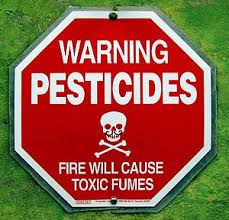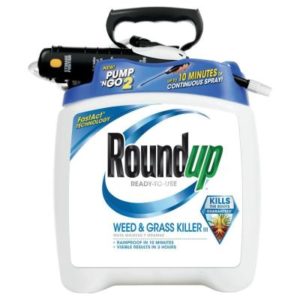 Pesticides causing health problems are appearing in study after study. A recent study found that higher glyphosate levels in pregnant women is associated with lower birthweight in the babies and higher risk of admission to neonatal intensive care units.
Pesticides causing health problems are appearing in study after study. A recent study found that higher glyphosate levels in pregnant women is associated with lower birthweight in the babies and higher risk of admission to neonatal intensive care units.
Studies find that almost all pregnant women have detectable levels of glyphosate in their bodies - which of course reaches the fetus. In this study by Univ. of Indiana researchers it was detected in 99% of the women during the first trimester! Higher levels resulted in reduced fetal growth. This is very concerning.
Glyphosate is found in the popular herbicide (weed-killer) Roundup. The use of glyphosate has increased substantially with genetically modified crops (e.g., Roundup resistant crops such as corn and soybeans) and with its preharvest use in conventionally raised crops (preharvest guide). It's found on many regular oats, wheat, soybeans, canola, lentils flax, etc.
This is why with each new study higher levels are found in people. It's in our food.
What else is glyphosate doing to us? It has been linked to a number of human health effects, such as cancer, endocrine (hormone) disruption, liver and kidney damage, preterm birth, and even having a negative effect on our gut microbiome - by killing off certain important species of gut microbes. There is much we still don't know about chronic exposure to low levels of the pesticide.
By the way, the United States FDA allows higher levels of glyphosate residues in food and humans than other countries, including European countries. Of course this is due to the pesticide industry lobbying the FDA real hard, political interference, and then think of all those cushy pesticide industry jobs government workers eventually get as a reward. (Yes, it's revolving door from the government to industry jobs...)
Organic farmers are not allowed to use glyphosate. So if you want to avoid the pesticide - eat as many organically grown foods as possible.
From Science Daily: High exposure to glyphosate in pregnancy could cause lower birth weights in babies
Indiana University School of Medicine researchers are learning more about the effects of herbicide exposure during pregnancy, finding glyphosate in 99 percent of the pregnant women they observed in the Midwest. In the study, published recently in Environmental Health, higher glyphosate levels were associated with lower birth weight and may also lead to higher neonatal intensive care unit admission risk. ...continue reading "Almost All Pregnant Women Have This Pesticide In Their Body"

 It has been known for years that wearing your shoes indoors means that everything that is on the ground outdoors will be tracked into the home.
It has been known for years that wearing your shoes indoors means that everything that is on the ground outdoors will be tracked into the home. 
 Also, the researchers did NOT look for the presence of some commonly used chemicals (and which are linked to health harms) such as
Also, the researchers did NOT look for the presence of some commonly used chemicals (and which are linked to health harms) such as  We all get exposed to pesticides to varying degrees - whether from our water, foods we eat, inhaling them, or absorbing them through our skin (e.g., walking or playing on pesticide treated lawns). Unfortunately, studies show our exposure to the pesticide glyphosate (found in Roundup) is increasing each year.
We all get exposed to pesticides to varying degrees - whether from our water, foods we eat, inhaling them, or absorbing them through our skin (e.g., walking or playing on pesticide treated lawns). Unfortunately, studies show our exposure to the pesticide glyphosate (found in Roundup) is increasing each year.

 Whether one eats organic foods or non-organic foods does make difference, even when eating a healthy Mediterranean style diet. A recent
Whether one eats organic foods or non-organic foods does make difference, even when eating a healthy Mediterranean style diet. A recent  Another recent study found an association with pesticide exposure (both herbicides and insecticides) and leukemia risk in infants and children.
Another recent study found an association with pesticide exposure (both herbicides and insecticides) and leukemia risk in infants and children.  Our pets are at risk too. Dogs exposed to lawn pesticides develop the same cancers as humans. Researchers consider them early warning systems for human health because cancers take only a few years to show up in dogs, but many years in humans.
Our pets are at risk too. Dogs exposed to lawn pesticides develop the same cancers as humans. Researchers consider them early warning systems for human health because cancers take only a few years to show up in dogs, but many years in humans.